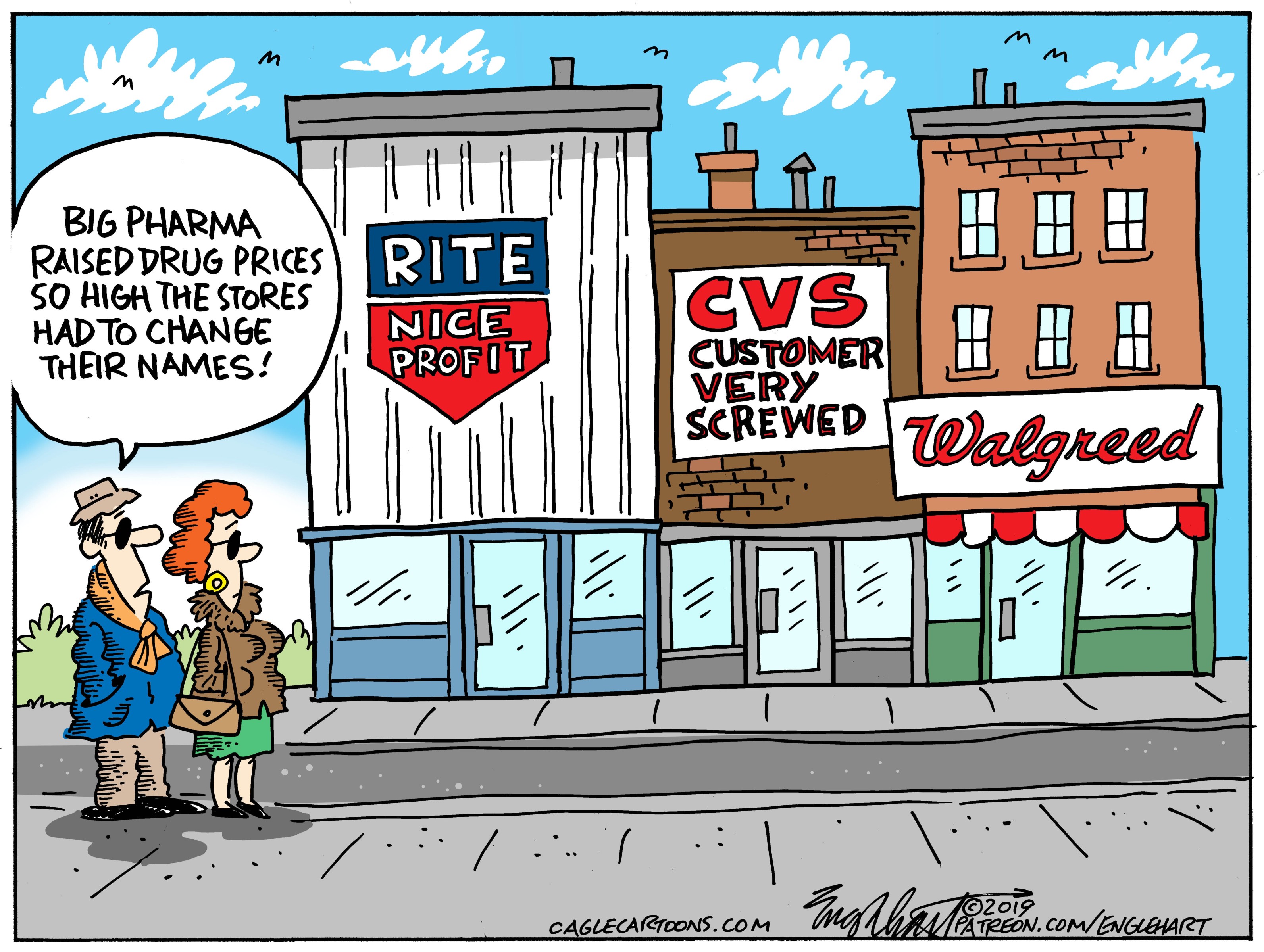Biden’s big deal on drug prices
President Biden announced the first price negotiations over 10 super-expensive Medicare drugs last week through the Inflation Reduction Act as if it were a big deal. It is.
In fact, it’s the first time since the program’s creation under Lyndon Johnson in 1965 that Democrats have struck a major blow toward reducing the program’s costs for taxpayers.
Most past efforts – including the monumental Affordable Care Act of 2010, or Obamacare – have focused primarily, and appropriately, on increasing access to insurance. America is the only developed country not to offer universal coverage to its citizens, and despite the ACA, millions still go uninsured.
Biden, however, scored a hit on part of the health care cartel: the enormously profitable pharmaceutical industry aptly known as “Big Pharma.”
The reason Big Pharma has been sitting pretty the past two decades is the form the important expansion of Medicare benefits took in 2003, when – after years of pushing by Congressional Democrats – GOP President George W. Bush signed the bill into law.
To get enough Republican votes, Democrats made two costly concessions that have come back to haunt us – especially as taxpayers.
One was to allow private insurers to write Medicare policies for the first time, the Advantage plans that, though a small proportion at first, now comprise a majority of new enrollments.
And no wonder. Advantage plans offer significant benefits, including expanded coverage, lower deductibles and, often, more choice of providers. Yet there’s no earthly reason private insurers need to sell, and profit from, these policies.
The government could do that directly; big private insurers already manage the benefit programs on a contract basis – one reason reformers often cite unnaturally low administrative costs for Medicare when comparing public vs. private: It’s already in the contracts.
Yet Republicans insisted on private policies and worked even more egregious mischief in the brand-new Part D: prescription drugs that weren’t covered before; only those dispensed in doctor’s offices were.
The GOP decreed that Medicare must pay whatever drug companies wanted. The results have been near catastrophic.
The drugs on the Biden administration’s list cost, on average, three times what other nations pay: 300% more.
That explodes the drug company argument that such prices are necessary to avoid stifling innovation. Why should Americans, alone, pay through the nose so Germany, France and Sweden can get steep discounts on the very same pills?
That American firms are producing most drugs only makes it more galling.
Medicare copays and out-of-pocket expenses alone have put life-saving prescriptions out of reach for many seniors, even though this is our only large-scale form of universal coverage. The Biden plan offers hope, though no immediate relief.
If the plan survives Republican attacks and industry lawsuits, it won’t take effect until 2026. And it affects just 10 of more than 7,000 covered drugs.
In fairness, these are some of the most widely used, and expensive. Inflation Reduction Act provisions allow fairly rapid expansion of the list in subsequent years.
It’s a start, and if it becomes a trend, it could finally mark a new direction is the dismal course of the American health care system, which becomes more corporatized and bureaucratized, more remote from the people it’s supposed to serve with each passing year.
Prescription drug coverage is only one of many wrong turns we’ve taken as we’ve struggled, and failed, to create a sensible system every other nation has long since cobbled together – often incrementally, but with eventual success.
Give Democrats credit for at least trying. Bill Clinton discovered the problem, unfortunately, only after taking office in 1993, frittering away valuable time before Hillary Clinton’s task force produced a plan, sort of, by year’s end.
Congress passed no bill, but when Hillary Clinton ran for president in 2008, Barack Obama also took up the issue and as president pushed through a landmark bill.
Its achievements included insurance exchanges producing (relatively) affordable private policies and Medicaid expansion, collectively cutting the uninsured rate more than half.
It’s to the Republican Party’s eternal discredit that, having contributed nothing toward making health care more affordable or available, it set its sights on repealing the ACA in Congress and at the Supreme Court, though failing in both.
Republicans’ second tactic was refusing to accept initially 100% federally funded Medicaid expansion, something governors in Texas and Florida still insist on as if it were a sacred mission to deny health care to poor people.
The problems of excessive bureaucracy and privatization still loom large. Next week, we’ll take a look at how that came about, and what might be done.
Douglas Rooks has been a Maine editor, columnist and reporter since 1984. His new book, “Calm Command: U.S. Chief Justice Melville Fuller in His Times, 1888-1910,” will be published later this year. He welcomes comment at drooks@tds.net
Invalid username/password.
Please check your email to confirm and complete your registration.
Use the form below to reset your password. When you’ve submitted your account email, we will send an email with a reset code.
« Previous
Tom Purcell: Jimmy Buffett — a super spreader of happiness
Related Stories
No Byline Policy
Editorial Guidelines
Corrections Policy
Source

